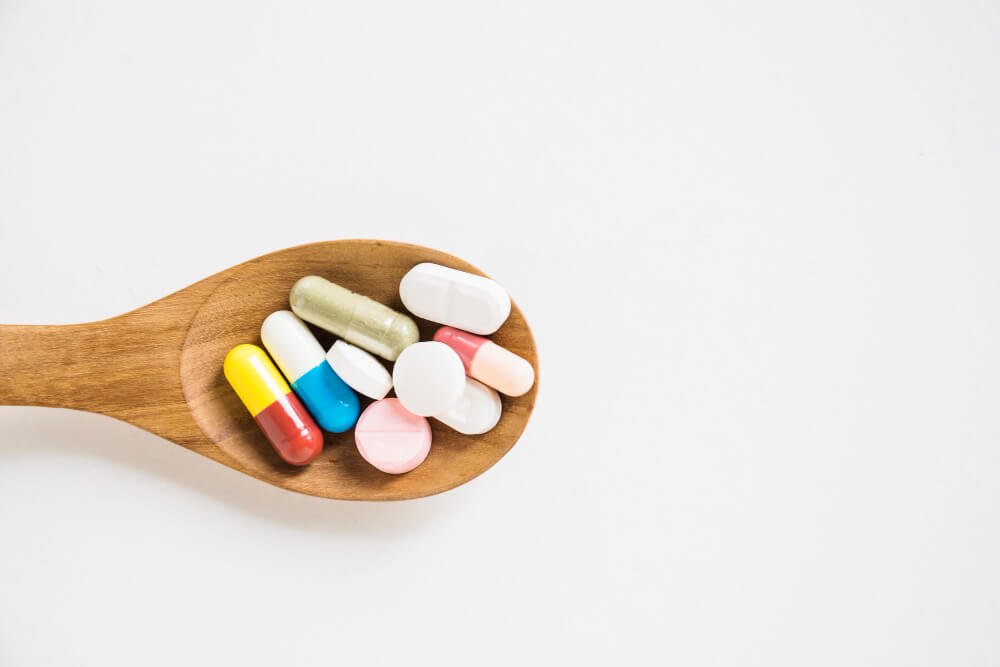Table of Contents
Depression as a mental health issue is a pervasive illness that impacts global populations. A diagnosis warrants therapy and medication, but a recent investigation into the specific use of vitamins for depression allows a glimpse into self-care. Some vitamins can affect one’s mood or lower harboured stress while supporting the brain’s function, to name a few. In this article, I shall discuss essential vitamins for depression along with their mechanisms and provide age and gender-appropriate guidelines to include them in one’s lifestyle routine.
How Vitamins Affect Depression

Vitamins are vital ingredients that help the body perform its functions, including the brain’s cognitive capabilities. Beyond the well-known symptoms of depression such as low energy, fatigue and mood changes are very common. Not all depression stems from vitamin deficiency, but some certainly do. Vitamins for depression aim to help individuals pursuing holistic approaches and neglecting treatment supplemented with orthodox science.
Some known vitamins that aid in solving depression include:

• Vitamin D: Correlation exists between depression and lower concentration of vitamin D, especially in winter seasons where surrounding sunlight is deficient.
• Vitamin B12: This vitamin is crucial for nerve activity and serotonin, the so-called ‘happy hormone’ production.
• Folate: Having less than adequate Folate concentrations has been linked to feelings of depression and limited reactions to antidepressants.
• Vitamin C: Aside from its ability to reduce the effects of free radicals, vitamin C helps in reducing oxidative stress that contributes to mood disorders.
• Vitamin E: As an antioxidant, it defends the brain against damaging free radicals and helps improve mood.
Vitamins for Depression According to Age

Depression is a disorder that affects almost all age groups, and the physiology of the body in terms of vitamin absorption and its utilization will change with age. This is how vitamins for depression can aid mental health in different age groups.
In Your 20s: Forging Mental Strength.
In your 20s, life-changing events such as entering the workforce, getting into relationships, or moving schools can lead to a good amount of stress as well as a change in mood. Adults may show stronger emotional reactions as compared to youngsters which makes them more vulnerable to depressive symptoms.
Vitamins for Depression in Your 20s:
• Vitamin D: Vitamin D deficiency is common. If you live in a place with long winters, getting sunlight might not be enough, hence taking vitamins may be necessary to keep a good mood.
• Vitamin B12: The lack of B12 can cause you to feel tired or restless. It is crucial for vegans and vegetarians because B12 is extracted from animal sources only.
• Vitamin C: Stress and poor sleeping habits can both lower your vitamin C, negatively impacting your mood. When C is supplemented, it boosts the immune system along with ensuring mental well-being.
Recommended Supplements:
• B-Complex Vitamins: Useful for maintaining increased mental and physical activity along with defeating tiredness, a common side effect of depression.
• Magnesium: It can help with the relaxation of the nervous system while improving sleep.
In Your 30s: A Guide to Balancing Stress and Family Life
In your 30s, new issues start cropping up about your career, children, and relationships. These aspects could increase the chances of stress and depression.
Vitamins to consider for depression in your 30s:
• Vitamin B6: This vitamin supports the production of serotonin, a mood-controlling neurotransmitter. The lack of B6 can lead to irritability and anxiousness.
• Folate (Vitamin B9): Folate is responsible for some neurotransmitter production and also aids cognition. During depression and with low folate levels, the effectiveness of antidepressants is greatly reduced.
• Vitamin D: Vitamin D should be supplemented especially when stressed, as this vitamin can wear off quickly during times of stress and is important for stability.
Senior Smart Recommendations:
– Omega 3 Oil Supplements: Studies have indicated that Omega 3 oil can help manage depression and anxiety.
– Gut Friendly Bacteria: Recently science has proven that the mind is affected by the gut and vice versa. Probiotics can assist in digestion and improve mood as well.
At Age 40: Attend to the Shifts in Balance, Clarity, and the Mind
Changing hormones and stress at mid-life are potential threats to mental health in one’s 40s. Career transitions, dealing with teenage children, and the beginning stages of perimenopause, are life changes that can lead to depression.
Vitamins Useful for Depression in Your 40s Are:
– Vitamin B12: Important to increase the diet of women in their 40’s as a deficiency in Vitamin B12 can exacerbate low energy levels and mood disorders. In turn, it helps in alleviating symptoms of depression as well as improves cognitive abilities.
– Vitamin D: Lack of Vitamin D is proven to be a cause of seasonal depression also known as Seasonal Affective Disorder (SAD), especially for older individuals as one’s ability to synthesize this vitamin from the sun decreases as we age.
– Vitamin E: A strong antioxidant serves the dual purpose of supporting brain health and shielding the individual from oxidative stress that can lead to mood disorders.
Senior Recommendations For Supplements Are:
– Ashwagandha: Often, during midlife comes naturally and helps reduce anxiety and stress that is not good at this life stage.
– Vitamin E: Helps combat loss of memory and is a big contributor to mental tiredness in a day.
In your fifties and later: How To Manage Mood Shifts Associated with Aging
Older adults often suffer from depression due to retirement, shifts in social relationships, and the process of ageing itself. Additionally, depression can severely reduce serotonin in the body, which inhibits mood regulation.
Vitamins that May Relieve Depression in People Over 50
• Vitamin D: Vitamin D exerts adverse effects on older adults because of fatigue, depression, and poor sleeping patterns. However, vitamin D supplements increase mood as well as clarity of the mind.
• Vitamin B12: Vitamin B12 absorption in the body reduces over time, which causes depressive symptoms and cognitive decline.
• Folate (Vitamin B9): Folate assists in the regulation of mood and helps the older population mitigate depression.
Possible Recommendations for Supplementation
• Probiotics: Assists in the maintenance of a healthy gut and affects mood positively.
• Coenzyme Q10 (CoQ10): Enhances brain function as well as energy, which can reduce aging-associated depressive symptoms.
Targeted Recommendations for Different Genders about Vitamins for Depression
Both men and women tend to experience depression differently, mostly because of biological and hormonal reasons. These differences, however substantial may seem, provide the basis to better understand the necessary vitamin supplementation for both genders.
Supplements for Depression in Men:
• Vitamin D: Men are more prone to vitamin D deficiency, which is linked to experiencing seasonal affective disorder (SAD). Using a Vitamin D supplement can help boost mood.
• Vitamin B12: Men have a greater chance of exhibiting symptoms such as fatigue and irritability because of their poor diets or their inability to absorb B12 appropriately.
• Zinc: Zinc deficiency can also be one of the causes of depression and its accompanying mood swings. Zinc supplementation may help foster better mood and mental health.
Supplement Recommendations for Men:
• Omega-3 Fatty Acids: Vitamins such as omega-3 Fatty acids are well known for combating depression and enhancing brain performance because they are anti-inflammatory.
• Magnesium: Enhances the ability to manage anxiety and sleep which are both domains that, if not adequately addressed, can lead to depression.
Vitamins for Depression in Women:
From the onset of menstruation, women are more likely to be affected by depression due to consistent hormonal changes within the reproductive system, especially during pregnancy or menopause. Proper vitamins for depression diagnosis can help boost mood and enhance the psychosocial well-being of the individual.
Vitamins for Depression in Women:
1. Zinc: Provides the body’s muscles with the ability to utilize stored fats. This vitamin aids in weight control for obese patients suffering from depression.
2. Vitamin D: Helps to manage retaken mood in women who suffer from hormonal imbalance. It decreases the chances of developing depression and enhances the mood.
• Vitamin B6: B6 is essential for the active production of serotonin, the chemical in the brain that regulates your mood and state of mind. It is particularly beneficial for women having difficulties controlling their mood during the menstrual cycle and menopause.
• Folate (Vitamin B9): Folate B9 is vital for the production of serotonin and can be helpful for women suffering from depression.
Supplement Recommendations for Women:
• Calcium: A linkage between calcium deficiency and the moods of women, especially in the phase of menopause, has been made.
• Probiotics: There is considerable evidence linking the state of the mind with the gut, and probiotics enhance the mental state.
Conclusion: Vitamins for Depression – A Natural Complement to Mental Health Treatment
Adding vitamins for depression to your dietary regimen is an easy and effective way to take care of your mental health. From women in their 20s to those in their fifties, supporting the mood and stressing brain health has never been easier. Still, professional help will always be needed but, accompanying therapy and medications, vitamins can make a huge difference.
Make sure to speak with a medical professional before starting any new supplement regimen to guarantee that it encourages your goals in health.

